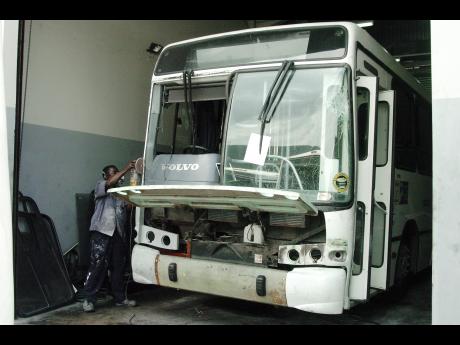Greener pastures for JUTC mechanics - Bus company losing trained staff to Canada and others
At least 20 specially trained mechanics have left the Jamaica Urban Transit Company (JUTC) since the start of the year for better paying jobs in Canada.
Managing director of the JUTC, Colin Campbell, last week confirmed the high attrition rate among staffers with specialist training, many of whom are seeking greener pastures overseas.
With the promise of citizenship, health benefits, better working conditions and a heavy labour market demand, these mechanics and other big rig drivers are finding jobs in North America, particularly Canada. As fast as the JUTC can train them they make their exit, leaving the company to be constantly training replacements.
"It's not drivers so much as mechanics. We are losing both, but we lose more mechanics. We have lost more than 20 mechanics since the start of the year, plus drivers. So we have to be constantly recruiting, and training," Campbell told The Sunday Gleaner.
According to Campbell, Canadian representatives came to Jamaica in 2014, and at a recruiting fair on the north coast they made pitch for drivers and mechanics.
Campbell said he was unsure how many employees the JUTC has lost as a result of that fair, but more than 50 drivers attended it.
training process
He explained that drivers are trained in batches, for intervals of six to eight weeks, in a similar recruitment and training programme to that of the Jamaica Constabulary Force.
"After graduation, they come into the scheme for another period of observation, after which they are on their own. But last year, we were constantly training, not because we are losing, but because we got new buses and our driver quota is two-and-a-half driver per bus," he explained.
The JUTC managing director said there was no shortage of drivers, because of the constant training programme with as many as 20 being trained in one go.
But Canada is not the only place attracting JUTC drivers and mechanics as local entities are also snatching them from the bus company.
"We have lost a few to the ports, where they are used to drive cranes and other heavy-duty machinery," said Campbell.


